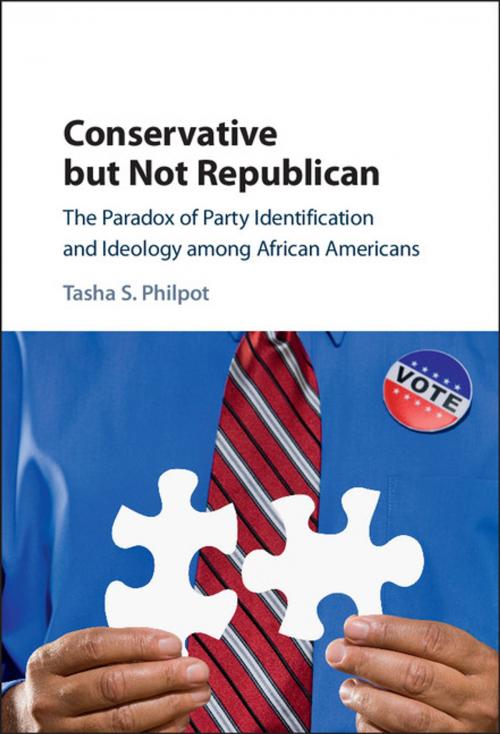Conservative but Not Republican
The Paradox of Party Identification and Ideology among African Americans
Nonfiction, Social & Cultural Studies, Political Science, Government, Social Science| Author: | Tasha S. Philpot | ISBN: | 9781316732557 |
| Publisher: | Cambridge University Press | Publication: | March 2, 2017 |
| Imprint: | Cambridge University Press | Language: | English |
| Author: | Tasha S. Philpot |
| ISBN: | 9781316732557 |
| Publisher: | Cambridge University Press |
| Publication: | March 2, 2017 |
| Imprint: | Cambridge University Press |
| Language: | English |
Conservative but Not Republican provides a clear and comprehensive framework for understanding the formation and structure of ideological self-identification and its relationship to party identification in the United States. Exploring why the increase in Black conservatives has not met with a corresponding rise in the number of Black Republicans, the book bridges the literature from a number of different research areas to paint a detailed portrait of African-American ideological self-identification. It also provides insight into a contemporary electoral puzzle facing party strategists, while addressing gaps in the current literature on public opinion and voting behavior. Further, it offers original research from previously untapped data. The book is primarily designed for political science, but is also relevant to African-American studies, communication studies, and psychology. Including easy-to-read tables and figures, it is accessible not only to academic audiences but also to journalists and practitioners.
Conservative but Not Republican provides a clear and comprehensive framework for understanding the formation and structure of ideological self-identification and its relationship to party identification in the United States. Exploring why the increase in Black conservatives has not met with a corresponding rise in the number of Black Republicans, the book bridges the literature from a number of different research areas to paint a detailed portrait of African-American ideological self-identification. It also provides insight into a contemporary electoral puzzle facing party strategists, while addressing gaps in the current literature on public opinion and voting behavior. Further, it offers original research from previously untapped data. The book is primarily designed for political science, but is also relevant to African-American studies, communication studies, and psychology. Including easy-to-read tables and figures, it is accessible not only to academic audiences but also to journalists and practitioners.















